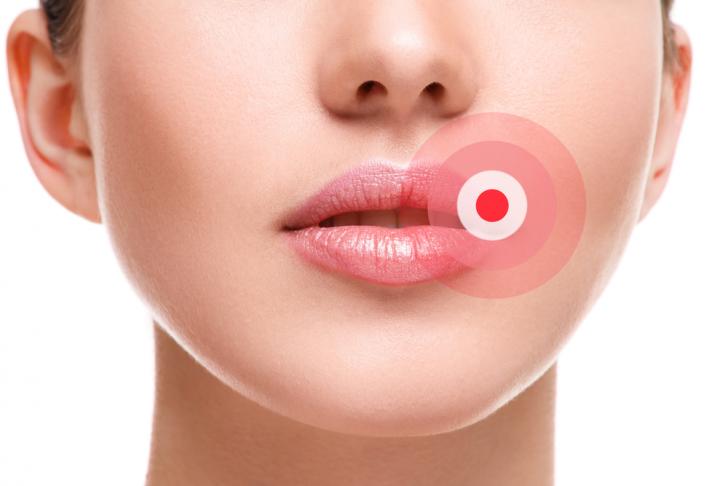
What are cold sores?
Cold sores, sometimes called fever blisters, are groups of small blisters on the lip and around the mouth. The skin around the blisters is often red, swollen, and sore. The blisters may break open, leak a clear fluid, and then scab over after a few days. They usually heal after several days to 2 weeks.
What causes cold sores?
Cold sores are caused by the herpes simplex virus (HSV). There are two types of herpes simplex virus: HSV-1 and HSV-2. Both virus types can cause lip and mouth sores and genital herpes. The herpes simplex virus usually enters the body through a break in the skin around or inside the mouth. It is usually spread when a person touches a cold sore or touches infected fluid-such as from sharing eating utensils or razors, kissing an infected person, or touching that person's saliva. Cold sores can also be spread to other areas of the body.
What are the symptoms of cold sores?
The first symptoms may include pain around your mouth and on your lips, a fever, a sore throat, or swollen glands in your neck or other parts of the body. After the blisters appear, the cold sores usually break open, leak a clear fluid, and then crust over and disappear after several days to 2 weeks. For some people, cold sores can be very painful. Some people have the virus but don't get cold sores and have no symptoms.
How are cold sores diagnosed?
Your doctor can tell if you have cold sores by asking you questions to find out whether you have come into contact with the virus and by examining you. You probably won't need any other tests other than a medical exam.
How are cold sores treated?
Cold sores will usually start to heal on their own within a few days. However, if they cause pain or make you feel embarrassed, they can be treated with skin creams, ointments, or sometimes pills. Treatment may get rid of the cold sores only 1 to 2 days faster, and can also help ease the pain.
Most people have been infected with this virus by the time they reach adulthood. Although most people have been exposed to HSV, only about 20% to 40% develop recurring cold sores.
The herpes simplex virus that causes cold sores cannot be cured. After you get infected, the virus stays in your body for the rest of your life. If you get cold sores often, treatment can reduce the number of cold sores you get and their severity.
If you have a weakened immune system and develop cold sores, you may need higher doses of these medicines to control your symptoms or daily doses to prevent outbreaks. For treatment of recurrent cold sores, the following medicines may reduce the severity and duration of the outbreak:
- Topical creams or ointments, which are available with or without a prescription, can reduce pain, itching, and healing time.
- Oral antiviral medications, which are available by prescription only, may be used when the first symptoms (such as burning or itching) develop. These medicines have little effect once the sore develops.
- Oral antivirals may also be taken daily to prevent recurring cold sores, especially in people who have frequent and painful outbreaks.
How can you prevent cold sores?
- Avoid coming into contact with infected body fluids, such as kissing an infected person.
- Avoid sharing eating utensils, drinking cups, or other items that a person with a cold sore may have used.
- Avoid the things that trigger your cold sores, such as stress and colds, and flu.
- Always use lip balm and sunscreen on your face. Too much sunlight can cause cold sores to flare.
- Avoid sharing towels, razors, silverware, toothbrushes, or other objects that a person with a cold sore may have used.
- When you have a cold sore, make sure to wash your hands often, and try not to touch your sore. This can help keep you from spreading the virus to your eyes or genital area or to other people.
Read More:
Can I Take Acyclovir During Pregnancy And Breastfeeding?
Pregnancy and Sexually Transmitted Diseases (STD)
